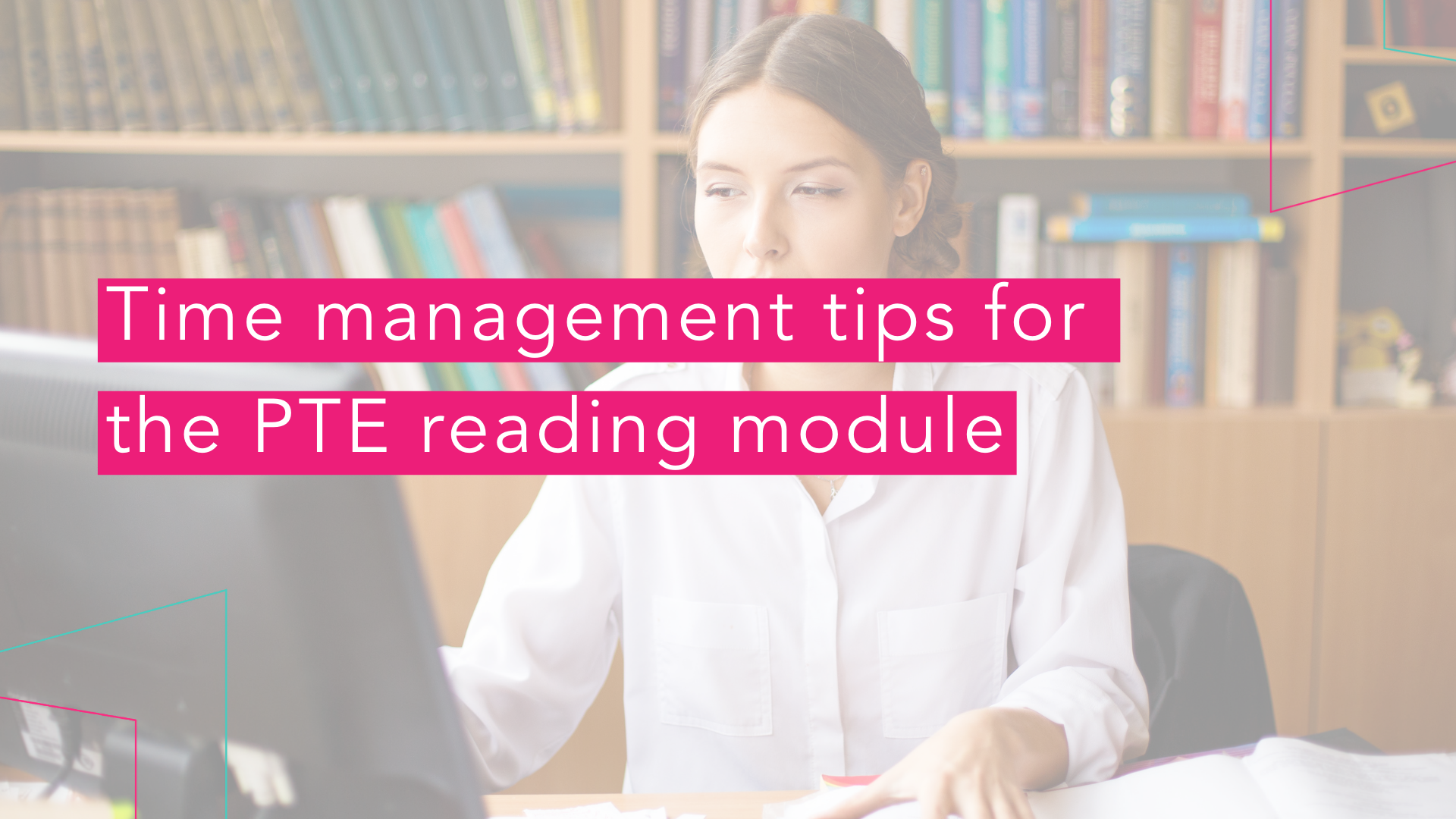
We’ve talked about overall PTE time management in our blog before. Now we’ll have a look at some tips that will help you manage your time during the Speaking part of the exam. Let’s check this out!
Know the structure of the Reading well
The Reading module of the PTE Academic consists of 5 exercises in this order: Fill in the Blanks (reading and writing), Multiple Choice (multiple answers), Re-orer Paragraph, Fill in the Blanks (reading), Multiple Choice (single answer). Remembering this structure will help you get organized.
Know which questions to skip
If you read our articles frequently, it’s no secret that the best way to do the PTE is by skipping questions that don’t impact your score significantly. When it comes to the Reading module, you can skip right over both Multiple choice questions. Don’t waste your time and energy on them.
Questions you should focus on
In turn, both Fill in the Blanks questions make up for a lot of points in your score. That’s why when you’re studying for the exam, you should focus on them. Knowing which questions are worth many points and which aren’t will help you better manage your time in Reading.
Make things easier for yourself
You have a total of 29 to 30 minutes to complete this entire module. This means that if you spend too long in the beginning, you won’t have time to finish the module. Every time you start a question, think of how long you’ll spend answering it and write that number down on your notes. This way you can completely focus on answering the question.
How long should I spend on each question?
We recommend that you spend from 2 to 2 and a half minutes on each of the important questions (both Fill in the Blanks and Reorder Paragraph). If you take longer on these two questions, you can spend less time in the Reorder paragraph, which you shouldn’t skip, but shouldn’t prioritize over both FIB questions.
I spent too long on FIB Reading and Writing
Because this question comes before Reorder Paragraph, if you spent more than the recommended time on it, you should try to do Reorder paragraph faster, so you have a decent amount of time to spend on the last question, FIB Reading, which is also worth a lot of points.
Pay attention to your performance when studying
Knowing where your strengths and weaknesses are is extremely helpful in time management overall. If you know you’re better at FIB Reading, allocate some more time for FIB Reading and Writing and vice versa. There isn’t just one strategy that fits all applicants. Find out what is best for you.
Don’t get stuck in difficult questions
If you get stuck on a question that you aren’t able to answer, don’t spend too long racking your brain trying to figure it out. It’s important to think well before answering the important questions, however, if you really don’t know how to answer something, guess one of the answers and move on.